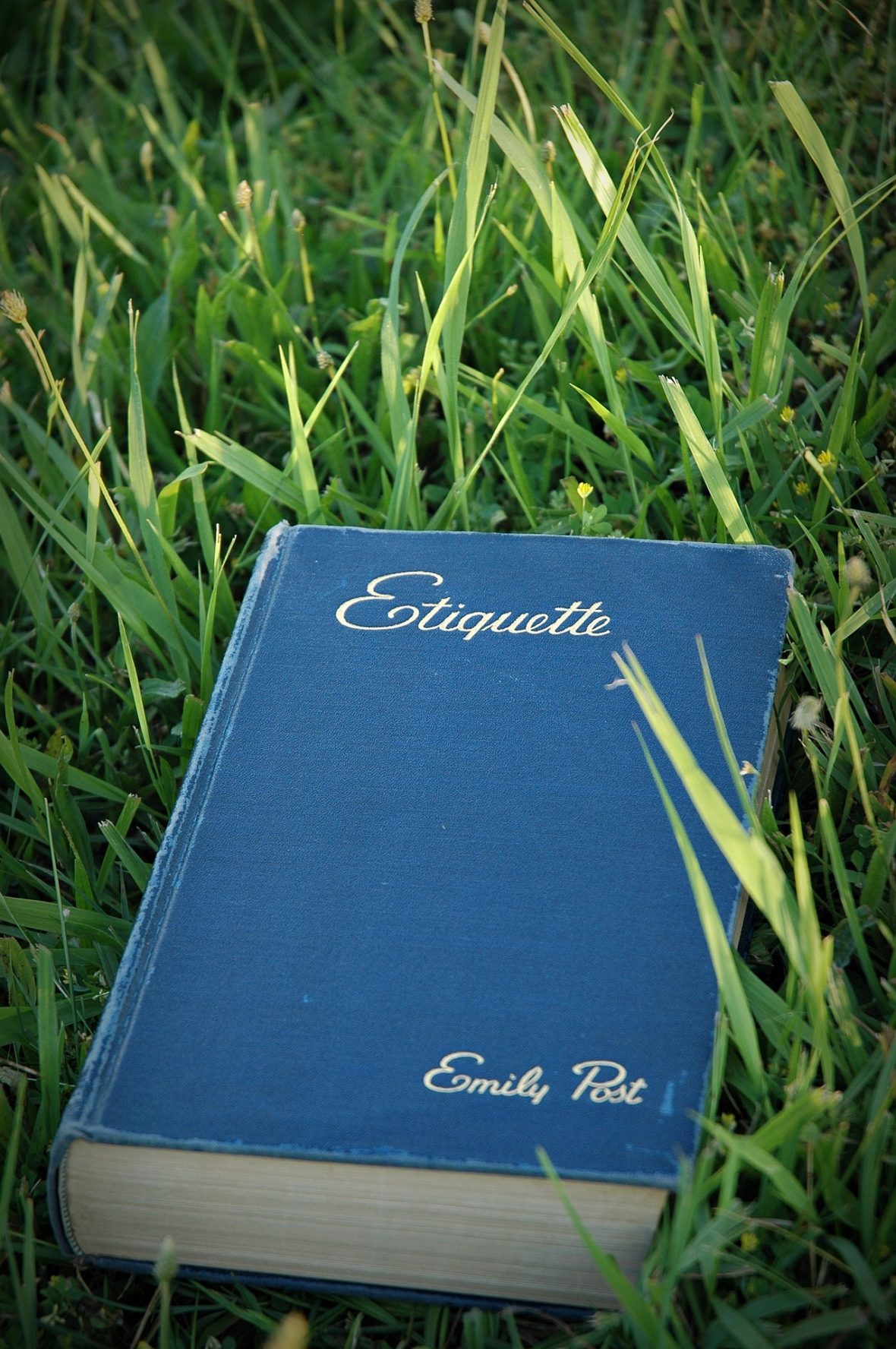Fr. George Rutler, a priest of the Archdiocese of New York, is a well-known writer and speaker. I remember my mother, Marian I, telling me of him several years ago when he had a series on EWTN; she liked him. When I have had the opportunity to listen to Fr. Rutler, I have enjoyed him, too. He is articulate and well educated: you may view his educational history at the end of this biography. When I have viewed his televised work, he displayed a gravitas appropriate for a man dealing with the destination of immortal souls on a daily basis. I am mentioning Fr. Rutler today, because he wrote an article this week which is titled, The Coarseness of Modern Manners; and I found it to be most interesting.
The subject of manners, or lack thereof, is rarely discussed in our society since the cultural revolution of the 1960’s. No, in fact, many modern men are proud of their lack of manners, proud of their bold self- assertion, and lack of thought regarding others. Hopefully, as a part of the Catholic based counter-revolution, or counter-reform, we might follow the example of Our Lady whose heart was continually set on God, and as a consequence was set on others; as in, the wedding feast of Cana, the trip to care for St. Elizabeth, etc. Our Lady displayed in her person the utmost modesty, and charity, from which springs what we know as manners, or kindness.
So, today, I am posting Fr. Rutler’s column on the topic of manners to give us all a bit of brush up on the topic of manners as they relate to the life of a Catholic. He wrote (source noted at end of column):
As a schoolboy, George Washington copied out in elegant script the 110 Rules of Civility & Decent Behaviour in Company and Conversation. Later on, our first President tried to figure out how a head of state who was not a monarch should conduct himself with his fellow citizens. His solution was to be a gentleman, obedient to those rules of civility that he had learned as a boy.
Etiquette may vary through the generations, but it bespeaks due respect. That has been largely lost in our time. Opinion polls admit that modern manners have become coarse. People dress with little regard for others and use foul language without shame. Popular comedians elicit roars of laughter from audiences not embarrassed by sluttish words that would have been unspeakable a generation ago.
This has nothing to do with snobbishness, and it has everything to do with moral perception of human dignity. Anyone who dresses in casual clothes for significant events because “it makes me more comfortable,” or who speaks loudly or interrupts others, is advertising his barbarity. Even Viking marauders paid attention to their ceremonial vesture and lyrical literature. A lesson can be learned from the Prodigal Son, who squandered his father’s inheritance and ended up living like the swine.
Our Lord told another parable about guests being kicked out of a wedding because they were improperly arrayed. Poor as He was in material terms, the Son required dignity in the House of the Father. He had little money, but if He had anything expensive, it was His seamless garment. Poor people often have the best manners, and they are not in a position to “dress down” like richer people who have enough money to condescend to others.
The Christian has a baptismal dignity that should inform all of his manners and conversation. “So whether you eat or drink, or whatever you do, do it all for the glory of God” (1 Corinthians 10:31). Civility is defined by the Oxford English Dictionary as “politeness,” but that makes sense only as regard for the dignity of others. People using their iPhones and “texting” in restaurants, oblivious to those seated next to them, are disdainful of God’s creatures and the art of conversation. And those who tolerate cursing, or who lapse into vulgarisms themselves, have little approval from St. Paul: “Let no unwholesome word proceed from your mouth, but only such a word as is good for edification according to the need of the moment, so that it will give grace to those who hear” (Ephesians 4:29).
Consideration for the sensibility of others is supercilious only to those who have lapsed into a boorishness that simmers under the surface of every civilization. And by the way, George Washington’s 110 Rules of Civility were composed in 1595 by French Jesuits to instruct their students. Many of them went on to civilize much of the world. (source)
That is excellent.
Thank you, Fr. Rutler.
May you all have a good day.
~SCF
~Image: Emily Post‘s Etiquette.






